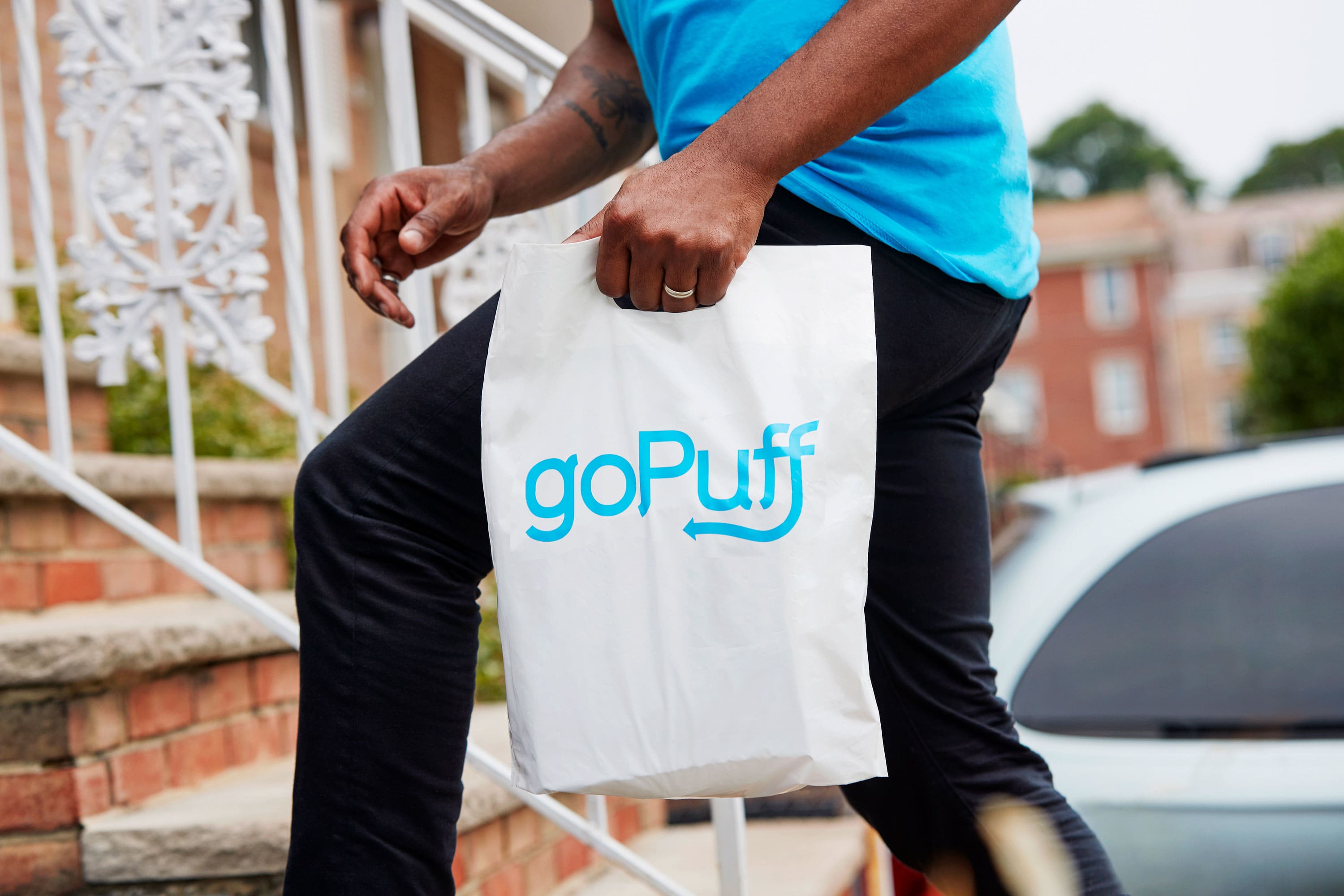If you order potato chips, toothpaste or over-the-counter medication through the Uber Eats app, it will soon be fulfilled and delivered by start-up Gopuff. The two Softbank-backed companies announced a partnership Tuesday.
Gopuff focuses on what it calls “everyday essentials,” items you would find in a convenience store.
“It’s a muscle Uber doesn’t have, and they are tapping us to power that for them,” Daniel Folkman, senior vice president at Gopuff, told CNBC on Tuesday evening.
“We built a hyperlocal logistics network of micro-fulfillment centers,” Folkman said. “We own all the inventory. We are buying all that inventory from manufacturers and distributors so we are able to fulfill those orders to customers in under 30 minutes, 24 hours a day.”
The collaboration will launch in more than 95 U.S. cities next month with a national expansion later this summer. Customers will order through Uber Eats, and that order will be sent to one of Gopuff’s 250 micro-fulfillment centers.
“With this partnership, we are able to leapfrog the competition in using Gopuff’s network of micro-fulfillment centers to instantly meet consumer demand for thousands of products,” Raj Beri, Uber’s head of grocery and new verticals delivery, said in a release.
Customers who order meals on Uber Eats and convenience items at the same time will have those fulfilled by different drivers. However, both companies said the order process will be seamless, with customers paying through the Uber Eats app. Gopuff has a flat $1.95 delivery fee, but orders over $15 will be free for Uber Eats Pass and Uber Pass subscribers.
While services such as Instacart and Target-owned Shipt are seen as competitors, Gopuff said it’s focused on convenience, not full grocery service. Last week, the company said toilet paper, Tylenol Extra Strength, White Claw hard seltzer, and Slim Jim snacks were among the popular items purchased.
“We buy the inventory. We sell it for more than we buy it, which is what has made the unit economics of our business much stronger than a number of third-party delivery services, because we’re actually making our money on the product margin, not on the people who deliver it,” said Folkman.
Gopuff was founded in 2013 by two college students in Philadelphia. The logistics start-up is now valued at $8.9 billion and recently acquired the BevMo liquor store chain with its more than 160 locations.
Uber has expanded its offerings and capabilities in recent months through acquisitions of delivery service Postmates, alcohol marketplace Drizly and grocery delivery service Cornershop.
